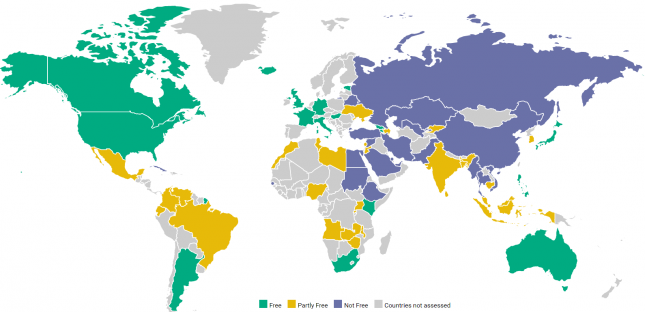67% of Internet Users Subject to Censorship in their Countries
One of the benifits of living in a state of freedom is knowing that we are not limited in terms of our right to free speech. While still a member of the US House of Representatives, James Madison stated, “The people shall not be deprived or abridged of their right to speak, to write, or to publish their sentiments.” Technology progressed as time went on and we became connected through the internet. This new medium that allows us to gain access to nearly unlimited amounts of information also allows us to share and publish our thoughts, ideals, rants, grievances, and concerns (amongst other things). We are not entirely limited in what we say but, unfortunately, that is not the case for many of our friends throughout the world. According to Freedom House (founded by Eleanor Roosevelt and Wendell Willkie in 1941) about 67% of internet users in the world are subject to censorship if they intend to criticize the “government, military, or ruling family.”
Over the past six years the world has seen an increase in censorship rather than progressing more towards freedom of speech. Governments around the world are targeting social media sites and apps to monitor or block citizens from using them. Some countries even go so far as to entirely cut off internet connection completely to reduce the outgoing news of any events that may threaten the status quo. An example of censorship would be arrests in Saudi Arabia as a response to ‘spreading atheism’ through social media by simply liking, sharing, or commenting on controversial posts. The ability to spreak freely through social media has allowed events that may go on rather unnoticed to be blown up by sparking interests and grabbing the attention of viewers throughout the world. Social media inadvertently delivered a platform that allows activists to reach the rest of the uncensored world to demand action.

